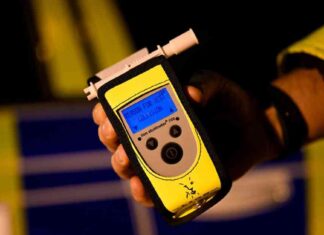Richard Rogers, a 45-year-old man from Billings, Montana, was found guilty of threatening to assault former House Speaker Kevin McCarthy. The incident occurred after Rogers became upset that the government did not take action against a Chinese spy balloon that floated over his city.
Prosecutors stated that Rogers made over 100 calls to McCarthy’s office in just 75 minutes on February 3, 2023, delivering the threat during these calls. In addition to this, Rogers was also found guilty of making 150 harassing calls to an FBI tip line in 2021 and 2022.
During the trial, Rogers argued that his calls were a form of “civil disobedience” and protected under the First Amendment as free speech. However, prosecutors contended that his actions crossed the line when he threatened McCarthy’s life and verbally abused Congressional staff and FBI operators.
While Rogers maintained that he never made any direct threats, the jury found him guilty on all counts. He faces up to six years in prison and a $250,000 fine for threatening a member of Congress, as well as a maximum penalty of two years and a $250,000 fine for harassment.
Rogers, who wore shirts depicting superheroes throughout the trial, including one with the letters “MAGA” referencing Donald Trump’s slogan, expressed dissatisfaction with his defense attorneys for not adequately presenting his case. However, the prosecution emphasized that the case was about illegal harassment, not politics.
Threats against public officials in the U.S. have been on the rise in recent years, with over 8,000 threats to lawmakers investigated by the U.S. Capitol Police in 2023. Officials anticipate a further increase in threats with the upcoming 2024 election.
Rogers, a former telephone customer service representative, testified that he wanted to be heard and felt disrespected by government employees. Despite his claims, the jury ruled in favor of the prosecution, emphasizing that harassing government employees is not protected under the law.
The sentencing for Rogers is scheduled for January 31, and he has been allowed to remain free until then. This case serves as a reminder of the consequences of making threats against public officials and the importance of respecting the boundaries of free speech.























